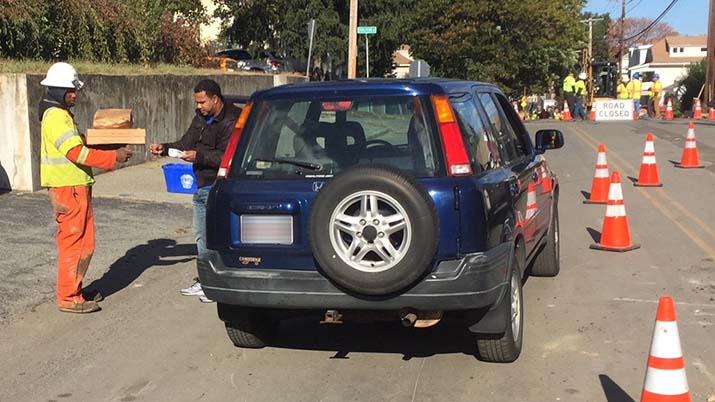They answer the call: Pipeline inspectors head to Massachusetts
Oct. 25, 2018
 |
| There are very few restaurants open near the work site due to the lack of natural gas. Pipeline workers — and residents without generators — have been ordering food from outside the affected area. |
Standing outside in a construction zone staring at pipelines in a dirt trench in the chilly fall air is hardly glamorous, but it is important. Especially when people are depending on those pipelines to survive. That’s why five Minnesota pipeline safety inspectors are going to Massachusetts over the next three weeks to help oversee the installation of new natural gas pipeline.
Three communities in Merrimack Valley experienced a series of natural gas explosions in September that killed one person, injured others, caused more than 80 fires, and forced the evacuation of 30,000 residents. And with a New England winter on the horizon, it’s a bad time to be without natural gas in Massachusetts, which powers cooking, heating, and hot water for thousands of homes and businesses there.
This causes all kinds of complications. Residents have to use generators for heating and cooking, but there are less obvious difficulties, such as feeding the workers lunch. Our first Minnesota Office of Pipeline Safety (MNOPS) inspector is already in Massachusetts, overseeing a crew of workers installing new pipeline. He reports that the crew has to order lunch from restaurants outside the affected area, since most within a 2-mile radius still don’t have natural gas and aren’t operational.
The MNOPS inspectors’ travel to Massachusetts was authorized by Gov. Mark Dayton as part of the Emergency Management Assistance Compact (EMAC), which allows states to offer resources and assist each other during emergencies. In addition to this EMAC deployment, Minnesota has fulfilled several other requests this year, including response and relief efforts for the Hawaii volcano eruption and hurricanes in the Virgin Islands, North Carolina, South Carolina, Virginia and Florida.
Overseeing safe pipeline construction is nothing new for MNOPS inspectors. Each MNOPS inspector is required to complete at least 85 days of inspections each year. Inspections can be on already existing or new lines. That’s when the inspector evaluates the operator's policies, procedures, training and qualification records. They also make field observations of practices and conditions.
And yes, MNOPS inspectors are very busy with their own work. After all, Minnesota has more than 60,000 miles of pipeline, and it’s the inspectors’ job to make sure it’s all safe. But when their counterparts in other states need help, they answer the call.

